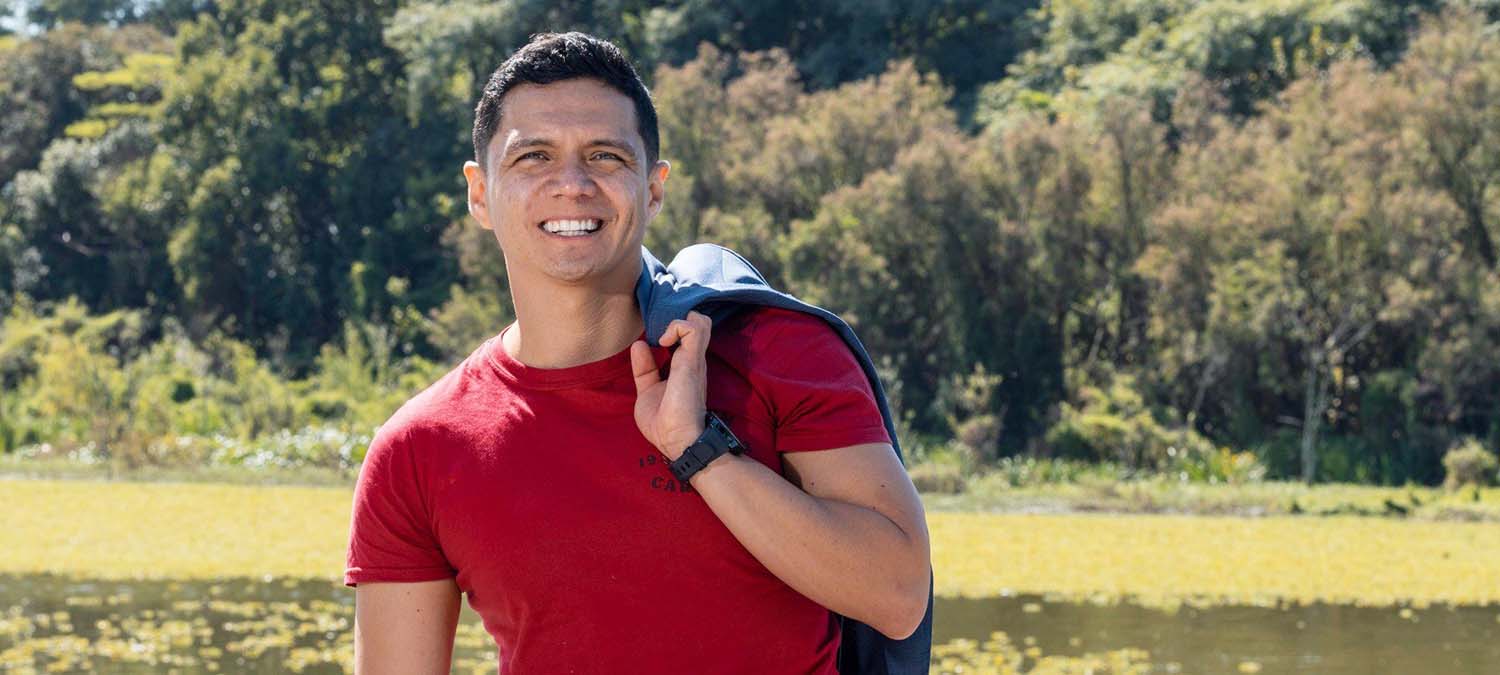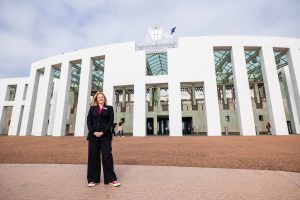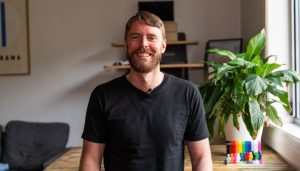This story was first published on Every Moment Matters – Community Stories. You can read it here.
By anyone’s measure, Gilberto Spencer has lived – and is living – a very impressive life.
The 36-year-old from Mexico has travelled the world and lived in major cities including Sydney, which he has called home for several years.
Finishing in the top of 300 students of his Bachelor of Accounting degree at a Mexican University in 2008, he is a strong academic performer.
He started his own financial services start-up called Zemble, where he worked for four years as the company’s Chief Operations Officer.
His resume is super impressive.
Gilberto is also living and functioning with Fetal Alcohol Spectrum Disorder (FASD), and he wants to tell his story.
FASD is a neurodevelopmental condition caused by a developing baby being exposed to alcohol during pregnancy. It is a lifelong disability.
Growing up in the Mexican border city of Hermosillo, Gilberto always knew he was – as he puts it – wired differently.
In Mexico, Gilberto’s mother drank while she was pregnant, and he says she has struggled with alcohol dependence her entire life.
During his life Gilberto has struggled with balance, coordination, sensory issues, hearing issues and has had chronic depression and anxiety.
When you speak to Gilberto, he has a lot of wonderful things to say, but he will admit he sometimes finds it hard to put everything in order and express succinctly how he is feeling.
Despite challenges Gilberto tried to live a normal life but after studying at university and building a career, moving internationally and finding love, he eventually began searching for answers.
“I had started Zemble and was living in Minneapolis and one of my co-founders flew over to see me and she was pregnant,” he said.
“I noticed she wouldn’t drink a lot of things, for example coffee, and she would say ‘that is not good for the baby,’ which is something very common to say.
“One day I thought about how my mother drank while she was pregnant, and how this could mean something.”
Gilberto did some research and returned to home in Sydney and called the NOFASD hotline, something he had never thought of doing before, given his lack of familiarity with the organisation.
“It was very surprising for me the fact I had never heard of FASD before, not on TV, movies, or at school,” he said.
“It’s not like I have been isolated. I have travelled in five continents, I’ve lived in Spain, the UK, the US and Australia, and I have never heard of FASD.”
After he called the NOFASD hotline, Gilberto was referred to an Australian psychologist who specialises in FASD diagnosis and nine months later, in 2020, he was diagnosed.
He remembers it as a bittersweet moment, as he finally had answers to explain his issues, but it was also the beginning of learning to live with FASD.
While he knew he was wired differently, he had lived unknowingly with FASD his whole life, so he thought there was a sense of normality to what he was experiencing.
“It was interesting because before my diagnosis I thought this is how everybody experiences things,” he said.
“I thought it was normal not to remember things all the time.”
Initially Gilberto felt a sense of shame about his diagnosis.
“I had a lot of fear about what people would think of me,” he said.
A lot of this shame was because he didn’t have that initial awareness about what FASD is.
After the diagnosis he also became obsessed with finding answers, and much of what he discovered about FASD he believes was unnecessarily negative.
“I think one of the reasons I was depressed was because I was reading so many negative things about FASD,” he said.
“My perspective towards FASD has changed a lot now, and I’m in a much better place, but it wasn’t like that in the beginning.”
Gilberto’s quest for answers about his FASD led to him accessing life and brain coaching.
He now also works as a coach himself, through his company and podcast called Wired Differently.
Gilberto wants to share his story to inspire others living with FASD and their families and show that you can still live a productive life despite all the challenges.
He has issues with his executive functioning that come with having FASD and there is no sugar-coating the fact sometimes everyday life is tough, but Gilberto has never given up.
“I always felt different, and I didn’t know why, but now I know why,” he said.
“Now instead of feeling stupid, I feel empowered. My brain is a problem, but my brain is a solution is well.
“I want to tell people with FASD that you can improve.”
Gilberto has his struggles, but he is also at peace with his FASD diagnosis.
“The way I look at it, everything happens for a reason,” he said.
“In some ways, if I didn’t have FASD, I wouldn’t be the person I am today. I wouldn’t be me; I would be someone else.”
He wants to share his story via outlets like his podcast and make it his purpose in life to make a difference to people like him who have FASD.
“This is now my calling in life,” he said.
“I am trying to be positive and encourage people living with FASD that life can be good.”







